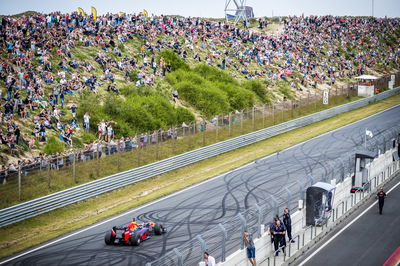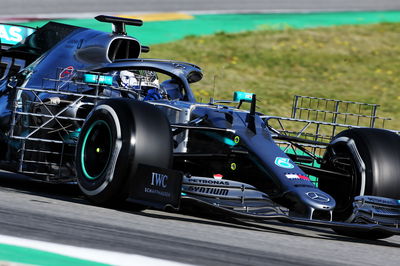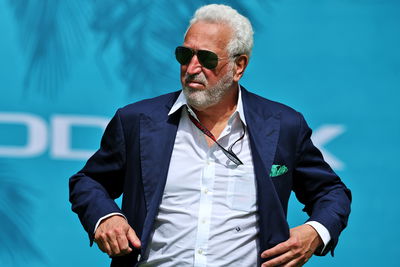'Important' Dutch GP return reflects F1’s strategy - Brawn
Formula 1 managing director Ross Brawn says the return of the Dutch Grand Prix reflects F1’s philosophy of having a mixture of new circuits and historic venues on the calendar.
On Tuesday it was announced that F1 will be returning to Zandvoort for the first time in 35 years next season, with F1 officials striking a deal with the circuit to host the Dutch GP for “at least three years” following months of negotiations.

Formula 1 managing director Ross Brawn says the return of the Dutch Grand Prix reflects F1’s philosophy of having a mixture of new circuits and historic venues on the calendar.
On Tuesday it was announced that F1 will be returning to Zandvoort for the first time in 35 years next season, with F1 officials striking a deal with the circuit to host the Dutch GP for “at least three years” following months of negotiations.
Zandvoort is set to join a brand-new street circuit in Vietnam on the calendar for 2020, which Brawn believes aligns with F1’s vision for the future of the sport.
“Today marks an important moment for Formula 1, with the announcement of the return to the calendar in 2020 of the Netherlands’ Zandvoort circuit that was part of the history of this sport up to the mid-1980s,” Brawn said.
“It also marks the return of grand prix racing to a country that is enjoying a new wave of enthusiasm for Formula 1, thanks to Max Verstappen.
“I’m sure the Red Bull driver can’t wait to race at home, even though there is already a sea of orange waiting to greet him at most European venues.
“So, next year we will have a brand new venue in the shape of Vietnam and the sport will return to one of its historic venues. In a way, this reflects our strategy of expanding Formula 1 to new territories, while maintaining its established roots in its birthplace, Europe.
Brawn confirmed the circuit and infrastructure is currently in the process of being modernised to comply the current FIA safety standards, while the paddock is being rebuilt.
“I have fond memories of attending F1 races at Zandvoort during the ’70s and ’80s when we discovered the ground effect phenomena and applied it to the cars, achieving ever increasing levels of downforce,” Brawn added.
“Seeing those cars tackling a corner such as Tarzan was truly spectacular. The track and infrastructure are being modernised to meet FIA safety standards and the paddock is being rebuilt, but I believe that Formula 1’s teams and fans will really appreciate the historic atmosphere when we go there next year.”
F1 is keen to stick to 21 races next year, with the Spanish Grand Prix likely to be axed from the calendar, while doubts remain over the future of the German Grand Prix and the Mexican Grand Prix, both of which are out of contract for 2020.
Silverstone’s deal to host the British Grand Prix also concludes after the 2019 event, though F1 officials and circuit promoters are understood to be in negotiations over a fresh contract.












